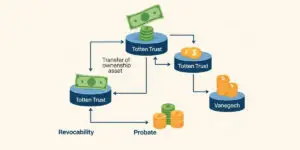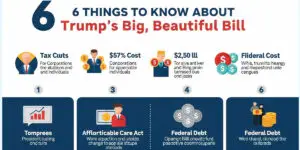The content of a well doesn’t often sit well with everyone. If you disagree with the content of a will, the best and legal way to voice your disagreement is by contesting the will. Maybe you feel that the testator was coerced into leaving your name out of the will. Or if you perceive fraud, the best way forward is by contesting the will. However, to do so, you will need the help of a competent estate planning attorney.
Before you hire an attorney, it is important that you understand the concept of contesting a will. As a resident of Bronx city, it would help if you did some digging into the process for a will contest in the city.
Below, I have highlighted some important details regarding what you need to know.
Will Contests
Will contest is a common type of estate lawsuit where the objectant (the individual objecting the will) challenges the validity of a will. Under the laws of New York, only specific persons can challenge the probate of a last will and testament, regarded as a “will contest”.
In order to have standing to contest a will, you must have a “pecuniary interest”. A pecuniary interest is an internet relating to money; thus, the following individuals are eligible to contest a will:
- Distributes (heirs at law) who will get less under the last will and testament than they would get when there exist no will; and
- Beneficiaries who would receive less under the purported will than they would under a prior last will and testament
Distributees or beneficiaries without a pecuniary interest can only challenge the appointment of a named executor who was designated as the executor in the will via fraud or undue influence. Such a distributee or beneficiary cannot contest the other provisions of the will. Your probate attorney can help you in ascertaining whether you have standing to contest a will being subjected to probate.
As soon as it is established that an individual is eligible to contest the will, objections can be filed in surrogate’s court to stop the will from undergoing probate. According to New York’s law, of which Bronx is a city in the state, a will contest may be made based on the grounds mentioned below:
1. Undue Execution
The will was not well executed. If this is the case you can contest the will.
2. Revocation
If the will was revoked by the testator, you can contest the will.
3. Incapacitation
The testator lacked the capacity to execute a last will and testament. If this is the case, contact a probate attorney and prepare to contest the will.
4. Fraud
You can contest a will if the testator was induced by fraud in making or executing the will
5. Undue influence
You can contest the will in the event that undue influence was exerted upon the testator in the making or execution of the will. In addition, you can also contest the will if you feel the testator was manipulated into drafting a will.
Contesting a Will in Bronx City, NY.
If you have enough reason to believe that there was some misconduct involved with the will execution itself or the circumstances leading up to the signing, the first thing to do is contact a competent attorney.
An attorney specializing in estate planning and probate law will tell you if there is a standing to make a challenge and whether legitimate grounds are available for a contest.
When starting a will challenge in Bronx City, It is crucial you understand that although one or all grounds may seem to be present, there might be strong conflicting evidence that says the opposite. The executor may table medical records which shows that the decedent was found in good health by his doctor, including writings like emails showing that the will admitted for probate is indeed according to the decedent’s wishes.
If the last will and testament of the decedent is turned down and deemed invalid, the whole estate will be inherited by the heirs of the deceased pursuant of New York’s intestacy law. There also exist the case in which a judge will rule only if specific provisions are invalid, while leaving other to remain.
If you need help in contesting a will, call our office. Our experienced probate and estate planning attorney can help.









